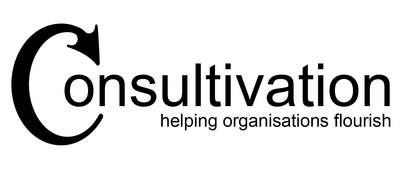|
By Jacqui Tibbits, Director Consultivation Middle-managers have a crucial role to play in successfully implementing organisational change however these times can also be very difficult for them. Middle-managers are valuable contributors who champion positive change, use their cross-organisational networks to progress change, are better attuned to the workforce knowing what they will embrace or oppose, have a greater understanding of frontline processes and have an ability to translate complex needs into relatable messages and actions. However change can also be difficult for middle-managers. It is most often these positions who are caught in the middle between the positions making the decisions and the staff and volunteers who it greatly affects. Middle-managers have to respond to the emotional and practical needs and expectations of both groups of internal customers and as such manage the workplace tension while maintaining change momentum. In addition to this, workplace change may also directly affect the role of middle-managers resulting in ethical dilemmas or a conflict of responsibility and may see some middle-managers actively blocking progress. Examples of workplace change which may affect middle-managers include 1. Merging or restructuring of teams, units or businesses results in less positions than people available Reducing positions often occurs across middle management hierarchical lines impacting on whether the middle-manager continues to progress change or whether the impact of ‘what happens to me’ which may include not having a job results in the slowing or stopping of progress. 2. Changing process or policy positions where middle-managers disagree with it This change may impact on their job, how it is completed, who they work with, where they sit or are based or who they report to or who reports to them; it may also see a conflict arise between organisational and personal values leading to ethical dilemmas. 3. Introducing new technology New technology can result in middle-managers not feeling as capable as they previously did or incapable altogether so they may resist the change, speak out against it or contribute to the negative feelings of others. People intervene in this way because of the impact it has on them even though they know the technology will build organisational capacity and improve client services.  Workplace changes can have an impact on the role of middle-managers and have change champions blocking progress. Workplace changes can have an impact on the role of middle-managers and have change champions blocking progress. An essential element of effective change management is providing sufficient time for middle-managers to process how workplace changes affect them, both professionally and personally. Providing this time to middle-managers as well as following up with them regarding their needs contributes to them feeling appreciated, supported and competent engendering successful change. Allowing adequate time and being genuinely authentic in supporting middle-managers will help them to perform their duties more effectively, identify if they need help including additional support and mitigate possible conflict. Our work in raising awareness of this change element during sessions is regularly received with caution, followed by thought, self-reflection and inquisitive inquiry through to acceptance of the concept, appreciation that is being discussed and adoption by managers and leaders working within change. We have recently been working with board members, executives and middle-managers to identify strategies for middle-managers to feel supported and competent in their role during change. Strategies regularly identified by participants include clear and transparent communication between parties, consultation with opportunities to influence change, to ask questions and provide feedback as well as access to training for developing new knowledge and skills; and general support. Participants have also identified the importance of individual and team contributions and remaining positive during change; and that they would like to be appreciated and praised receiving positive feedback when it is appropriate to do so. Research by Huy (2001) highlighted middle-managers play an important role in maintaining change momentum by staying attuned to the emotional needs of others and addressing tension often without reward or recognition by senior positions so it is interesting this is precisely what people in middle-management positions are asking for during our Working within Change sessions. Appropriately supporting middle-managers during change is essential to help your organisation flourish. We understand change can be daunting for some and full of opportunities for others but challenging for most. At Consultivation we are here to help by supporting you on your journey. We can assist with change and project management, professional development and capacity building of all staff and volunteers, mentoring and resource development. Consultivation is an independent consultancy service driven by an ethical values base supporting businesses and people to flourish. Middle management positions for this article include but are not limited to managers, supervisors, coordinators and team leaders. It can also lend itself to executive positions of not-for-profit organisations.
Sources Barnard, C (1958.) Elementary Conditions of Business Morals, California Management Review, Vol 1, 1-13. Consultivation (2018). Professional Development Session: Working within Change for Managers and Supervisors. Huy, Q. (2002). Emotional Balancing of Organizational Continuity and Radical Change: The Contribution of Middle Managers. Administrative Science Quarterly, Vol 47, 31-69. Huy, Q. (2001). In praise of middle managers. Harvard Business Review, 72-79. Koene, B (2017) Why Middle Managers, Rather than Senior Leaders, Should Initiate Organizational Change. Forbes, https://www.forbes.com/sites/rsmdiscovery/2017/11/27/why-middle-managers-rather-than-senior-leaders-should-initiate-organisational-change/#73f1c0712188 Pictures courtesy of Pixabay.
0 Comments
Your comment will be posted after it is approved.
Leave a Reply. |
Jacqui TibbitsJacqui is a positive change management specialist with a penchant for public speaking. Susan JohnsonSusan has expertise in cognitive behaviour therapy, narrative therapy & mindfulness. Guest bloggersGuest bloggers are invited to contribute to the Consultivation blog. If you have an idea, concept or perspective you would like to share please contact Jacqui at Consultivation.
"Consultivation delivers topics skilfully and clearly."
Workshop participant "I have a better understanding of what impacts the aged care changes are going to have on our clients and business." Michelle
"Consultivation delivers topics skillfully and clearly. The knowledge gained will give me guidance in doing my job and keeping up the goodwork." Mario
"Thanks to Consultivation I understand that changes are on-going in the organisation and sector to keep clients in their homes longer."
Nancy "Due to today's training I will be more open minded with staff and pull together and ask for help to improve when needed."
Carol Archives
June 2020
Categories
All
|




 RSS Feed
RSS Feed
